In ancient Rome, the role of consuls held great significance in maintaining a delicate balance of authority and preventing tyranny.
The Role of Consuls in Ancient Rome
The role of consuls in ancient Rome was one of the highest positions of authority and power. Consuls were elected officials who served as the chief executives of the Roman Republic. They were responsible for overseeing the day-to-day administration of the government, maintaining law and order, and representing Rome in diplomatic matters.
Consuls held a wide range of responsibilities, including presiding over the Senate, commanding the Roman army, and serving as judges in legal cases. They also had the power to propose legislation and veto decisions made by other magistrates. In times of crisis or war, consuls were given extraordinary powers to protect Rome’s interests and ensure its survival.
Key Responsibilities:
- Presiding over the Senate
- Commanding the Roman army
- Serving as judges in legal cases
- Proposing legislation
- Vetoing decisions made by other magistrates
The consulship was considered a prestigious position that carried significant influence within Roman society. Consuls were chosen from among the patrician class, which was composed of wealthy and influential families. Their term lasted for one year, after which they would typically move on to other high-ranking positions within the government or military.
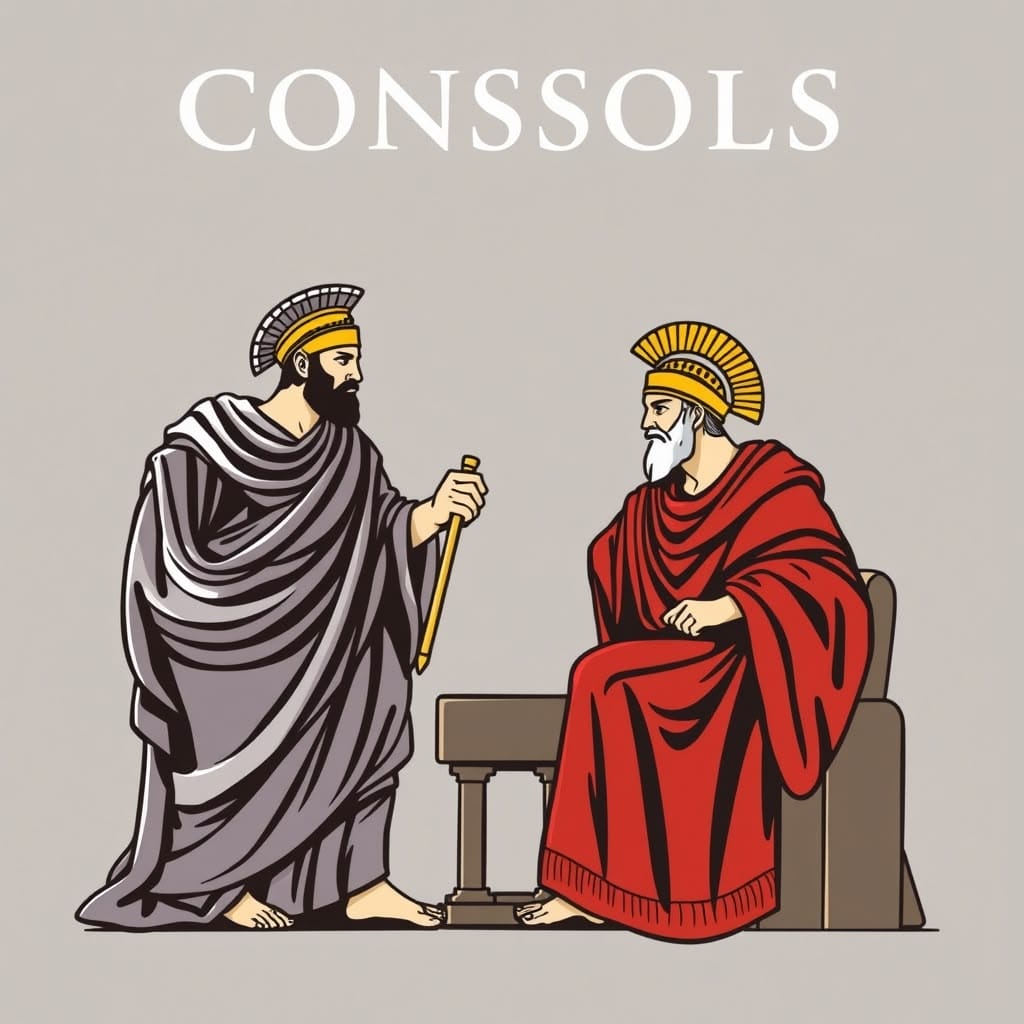
Balancing Authority: How Consuls Managed Power in Ancient Rome
In ancient Rome, consuls had to navigate a delicate balance between exercising their authority and avoiding accusations of tyranny or abuse of power. This was especially important due to Rome’s deep-rooted fear of monarchy and desire for a system that prevented any individual from gaining too much control.
To prevent any single consul from becoming too powerful, the Roman Republic established a system of checks and balances. Each consul had the power to veto the other’s decisions, ensuring that no major action could be taken without both consuls’ agreement. This system helped prevent any one consul from dominating the government and allowed for a more balanced distribution of power.
Methods of Balancing Authority:
- Veto power between consuls
- Rotation of consulship every year
- Consultation with other magistrates and the Senate
- Oversight from various governmental bodies
In addition to these internal checks, there were also external factors that influenced consuls’ exercise of power. Public opinion played a crucial role in shaping their decisions, as consuls needed to maintain support from the people to retain their authority. Consuls were also subject to legal constraints and regulations, which prevented them from abusing their position for personal gain or engaging in corrupt practices.
1Maintaining the Balance of Power
The first key responsibility of consuls in ancient Rome was to maintain the balance of power between different branches of government. Consuls were elected for a one-year term and held the highest executive authority in the Roman Republic. They were responsible for upholding the principles of checks and balances, ensuring that no single individual or group could accumulate too much power.
To prevent tyranny, consuls had the power to veto each other’s decisions. This system of mutual oversight helped to prevent any one consul from becoming too powerful and abusing their authority. Additionally, consuls were required to consult with the Senate, which represented the interests of the patrician class, before making important decisions.
Consular Veto Power
- The consuls had the authority to veto each other’s decisions.
- This ensured that no single consul could make unilateral decisions without consulting their counterpart.
- The veto power acted as a safeguard against potential abuse of authority by either consul.
Consultation with the Senate
- Consuls were required to consult with the Senate before making important decisions.
- This allowed for input from various factions within society and prevented any individual consul from disregarding the interests of influential groups.
- The consultation process helped maintain a balance between different classes and factions in Roman society.
Ensuring Fair Administration of Justice
Another crucial responsibility of consuls was to ensure the fair administration of justice within ancient Rome. Consuls served as chief judges and were responsible for presiding over trials and resolving legal disputes. They played a significant role in upholding law and order by interpreting and applying the Roman legal system.
To prevent tyranny in the judicial system, consuls were required to follow established legal procedures and respect the rights of individuals. They had to ensure that trials were conducted fairly, evidence was presented impartially, and verdicts were based on merit rather than personal biases.
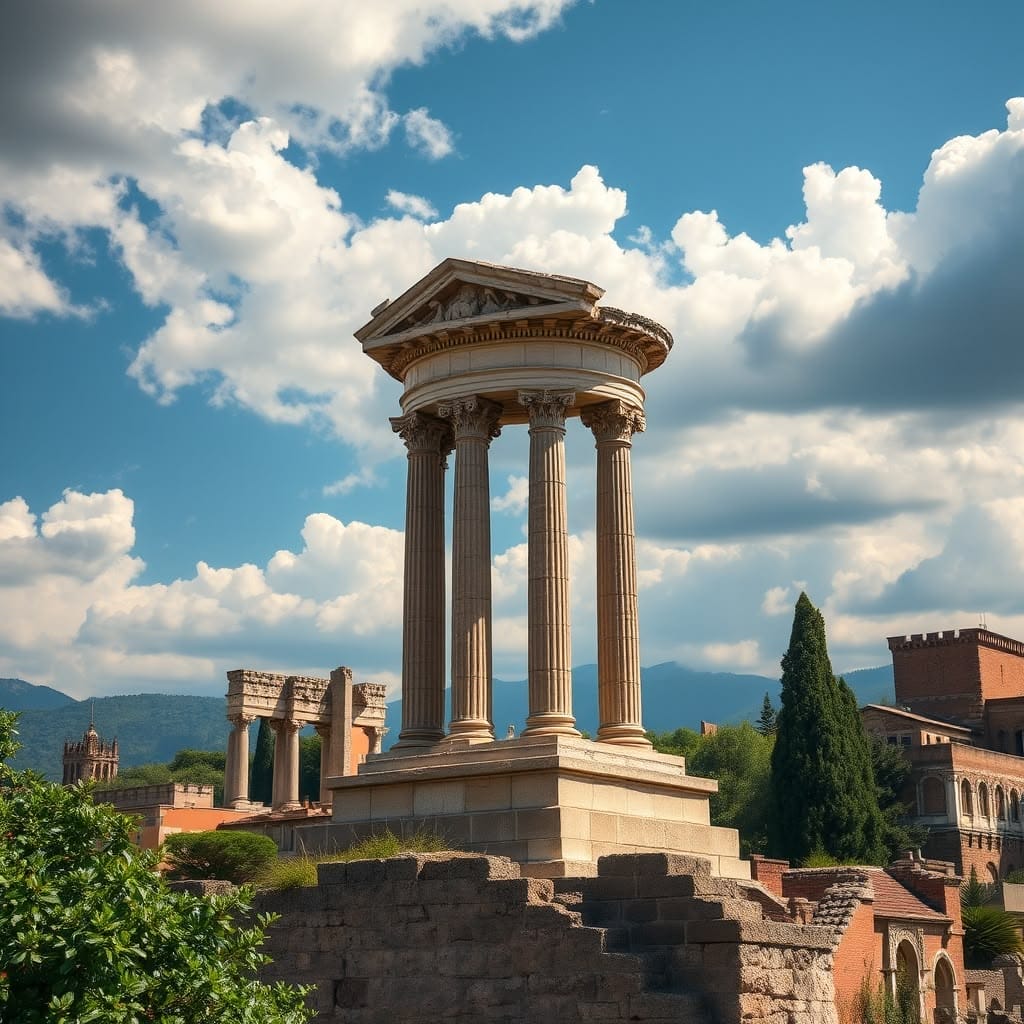
Presiding over Trials
- Consuls served as chief judges and presided over trials in ancient Rome.
- They were responsible for ensuring that legal proceedings followed established procedures and that both parties had a fair chance to present their case.
- Their role was crucial in upholding justice and maintaining public confidence in the legal system.
Fair Application of Laws
- Consuls had the responsibility to apply laws fairly and impartially.
- They had to interpret the law correctly and ensure that verdicts were based on evidence and merit rather than personal biases or external pressures.
- This commitment to fairness helped prevent the abuse of power within the judicial system.
The Role of Consuls
The consular system in ancient Rome played a crucial role in maintaining a balance of power within the government. Consuls were the highest-ranking officials and served as the chief executives of the Roman Republic. They were elected annually and held significant powers, including leading the military, presiding over the Senate, and representing Rome in foreign affairs. This dual leadership ensured that no single individual could accumulate too much power, as each consul had the ability to veto decisions made by their colleague. This system of checks and balances helped prevent any one consul from becoming too dominant and allowed for a more equitable distribution of authority.
Consul Succession
One important aspect of maintaining this balance was the succession of consuls. In order to prevent any one consul from holding excessive power for an extended period, it was customary for two consuls to be elected each year. The consuls would alternate their responsibilities on a monthly basis, with one serving as the head of state while the other commanded the military. This rotation ensured that power remained shared between multiple individuals and prevented any single consul from monopolizing decision-making or gaining undue influence.
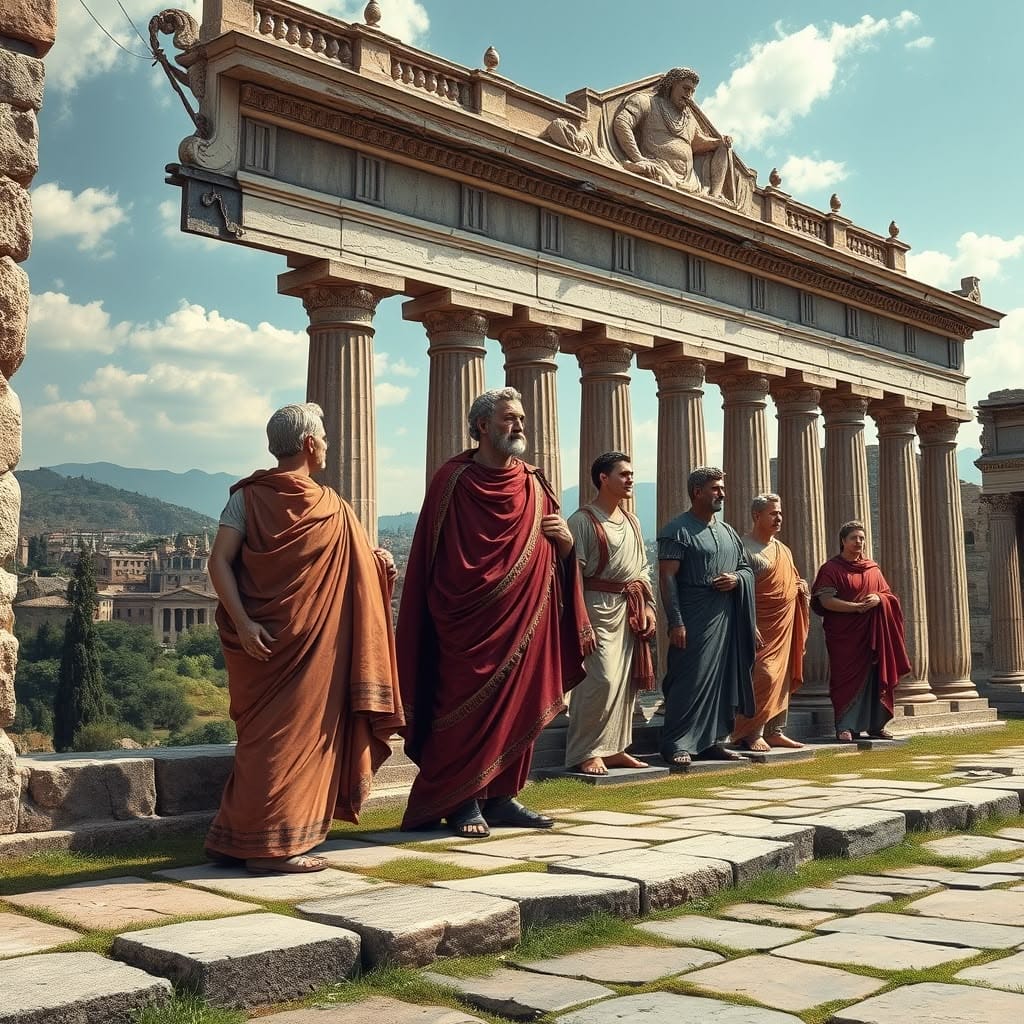
Limitations on Power
Although consuls held considerable authority, they were not without limitations. They were accountable to both the Senate and the people of Rome, who closely monitored their actions and decisions. Consuls were subject to regular scrutiny and could be impeached if they abused their powers or acted against the interests of Rome. Additionally, their term was limited to just one year, which further prevented them from consolidating too much power over time. This constant turnover in leadership contributed to stability within the Roman government and ensured that no individual could become too entrenched in their position. Overall, through its system of dual leadership, regular succession, and limitations on power, the consular system played a vital role in maintaining a balance of power within ancient Rome. This system helped prevent the concentration of authority in the hands of a few individuals and promoted stability and accountability in the governance of the Roman Republic.
Limitations on Consuls’ Term of Office
One major limitation on the authority of consuls in ancient Rome was their limited term of office. Consuls were elected for a period of one year and were not allowed to hold the position for consecutive terms. This ensured that power was not concentrated in the hands of a few individuals and prevented any individual consul from becoming too powerful or influential. The short duration of their term also allowed for frequent turnover and fresh perspectives within the consulship, which helped prevent corruption and abuse of power.
Example:
During their one-year term, consuls had to navigate complex political landscapes and ensure effective governance. They had to quickly familiarize themselves with ongoing issues, establish relationships with other officials, and make important decisions that would impact the state’s affairs. The time constraint placed on consuls required them to be decisive and efficient in their decision-making process.
Checks and Balances from Other Magistrates
Another limitation on the authority of consuls came from the system of checks and balances within ancient Rome’s government structure. While consuls held significant power, they were not immune to oversight or interference from other magistrates. For example, there were two consuls serving simultaneously, which meant that each consul could veto the actions or decisions made by their counterpart. This ensured that no single consul could act unilaterally without consulting with their co-consul. Additionally, there were other magistrates such as praetors and tribunes who had the power to intervene if they believed a consul was overstepping their authority or acting against the interests of the Roman Republic. These checks provided a safeguard against potential abuses by consuls and maintained a balance of power within the government.
Example:
The presence of multiple magistrates also meant that consuls had to negotiate and collaborate with others in order to achieve their goals. They had to build alliances, persuade other officials, and navigate the political landscape to advance their agendas. This requirement for consensus-building and cooperation helped prevent any individual consul from becoming too dominant or dictatorial in their decision-making.
Limitations on Military Authority
Consuls held significant military authority as well, but there were limitations placed on their command. For instance, while consuls could lead armies into battle, they were required to consult with the Senate before making major military decisions or initiating a war. This ensured that military actions were not taken lightly and that there was a collective decision-making process in matters of national defense.
Example:
Furthermore, consuls’ military authority was limited by the fact that they served only for one year. This meant that they had to achieve significant victories or progress within a relatively short period of time. The time constraint encouraged consuls to be strategic and focused in their military campaigns, as they needed tangible results before their term ended. Overall, these limitations on the authority of consuls in ancient Rome aimed to prevent abuses of power, promote collaboration among magistrates, and ensure effective governance both domestically and militarily.
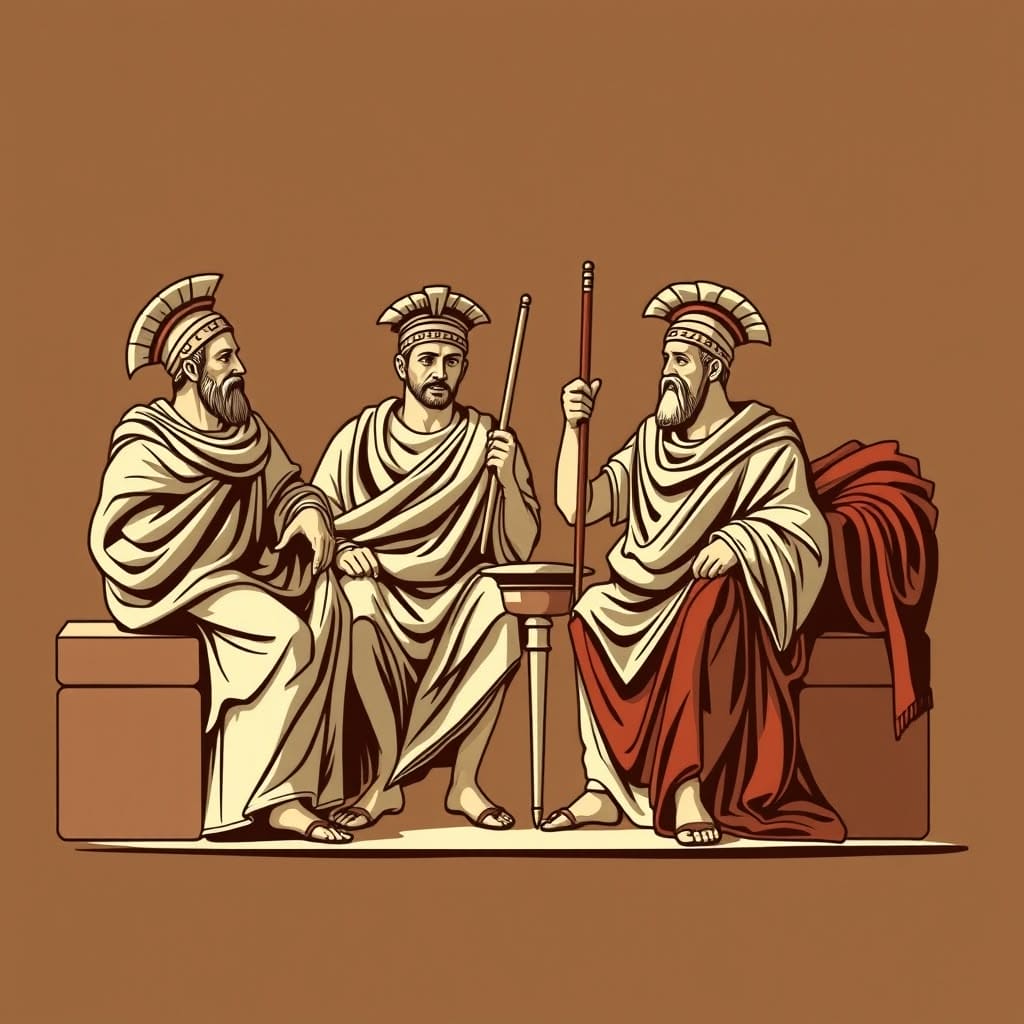
The Role of the Senate in Consul Appointments
The appointment process for consuls in Ancient Rome was primarily governed by the Senate. The Senate, composed of patricians and later including plebeians, held significant power in the Roman Republic and Empire. It played a crucial role in selecting individuals for consulship. When a consul’s term was about to end, the Senate would convene to discuss potential candidates for the position. They would consider various factors such as an individual’s political experience, military achievements, and loyalty to the state. The senators would engage in intense debates and negotiations before reaching a consensus on the final candidate(s) for consulship.
Factors Influencing Consul Appointments
Several factors influenced the appointment of consuls in Ancient Rome. One crucial aspect considered by the Senate was an individual’s noble lineage or prestigious family background. Being born into a prominent patrician family often gave candidates an advantage as it demonstrated their social status and connections within influential circles. Another factor that influenced appointments was an individual’s previous service to the state. Consuls were expected to have proven themselves through military accomplishments or successful political careers. Those who had led victorious military campaigns or held important governmental positions were more likely to be considered for consulship. Furthermore, personal alliances and political affiliations also played a role in consul appointments. Senators often formed factions or alliances based on shared interests and ideologies. These factions would support their preferred candidates during discussions, lobbying for their selection as consuls. In summary, the Senate held significant authority in appointing consuls in Ancient Rome. Factors such as noble lineage, past service to the state, and personal alliances all influenced these appointments.
The Election Process for Consuls
While the Senate played a major role in selecting candidates for consulship, there was also an election process involved. This process involved both popular vote and the approval of the Senate. The election for consuls was held annually, usually in the month of July. The Roman citizens eligible to vote, known as comitia centuriata, would gather in the Roman Forum. The candidates would present their qualifications and make speeches to persuade the voters. The voting process followed a hierarchical structure based on social classes. The citizens were divided into centuries, each representing a different wealth bracket. Wealthier citizens had more voting power as they belonged to higher-ranking centuries. The votes were counted per century, with each century casting one collective vote. Once the popular vote was conducted, the results were presented to the Senate for approval. The Senate had the authority to veto any candidate who was deemed unfit or unsuitable for consulship. However, it was rare for the Senate to reject a candidate chosen by popular vote unless there were serious concerns about their loyalty or capability. In conclusion, while the Senate played a crucial role in selecting candidates for consulship, there was also an electoral process that involved popular vote and Senate approval. This combination ensured a balance between senatorial influence and citizen participation in choosing Rome’s consuls.
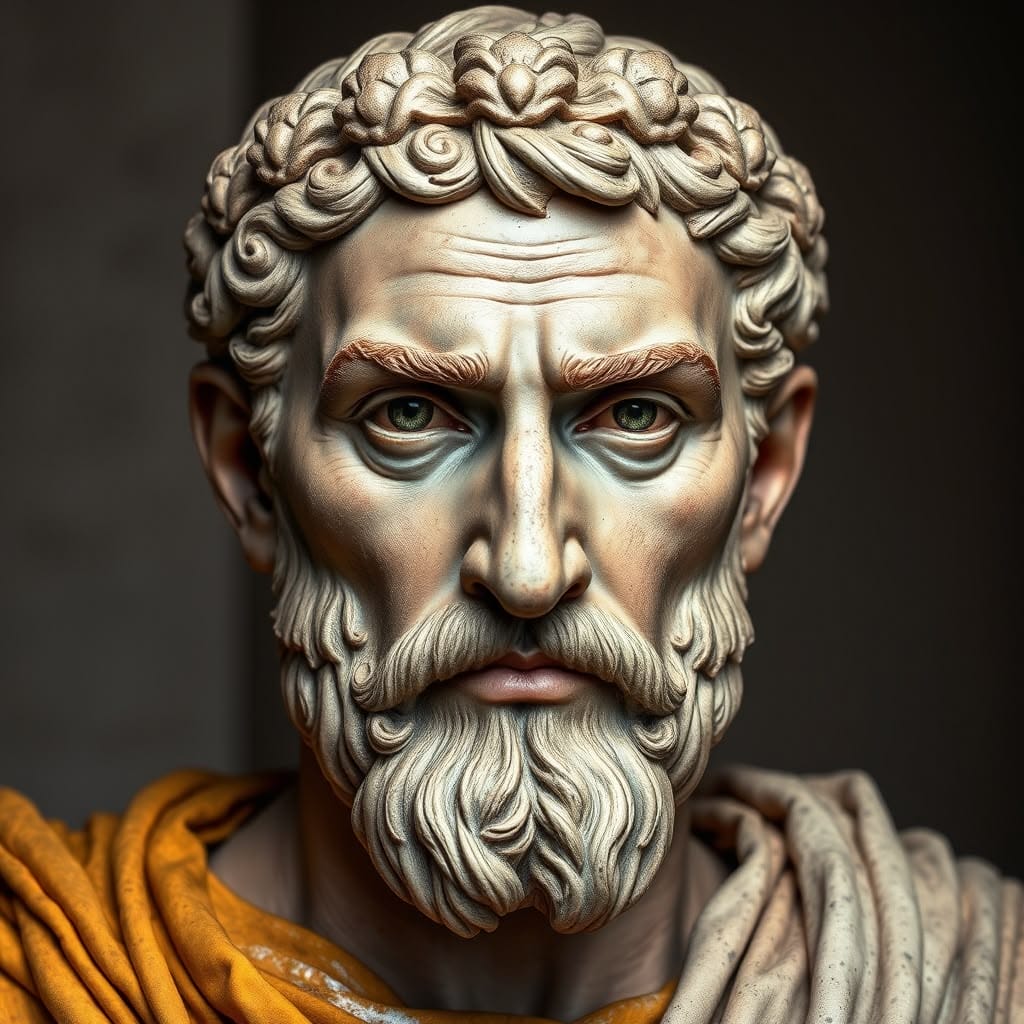
Term Limits in Ancient Rome
In Ancient Rome, the tenure of consuls was subject to term limits. Consuls were elected annually and served for a period of one year. This system was put in place to prevent the accumulation of too much power by any individual consul and to ensure a rotation of leadership within the Roman Republic. The term limit allowed for fresh perspectives and ideas to be brought into the consulship each year, preventing stagnation and promoting a more dynamic governance system.
Rotation of Consuls
The rotation of consuls was an essential aspect of the Roman political structure. Each year, two consuls were elected, and they shared power equally. This arrangement ensured that no single consul could dominate decision-making or abuse their authority. The consuls were responsible for leading the Senate, presiding over assemblies, commanding armies, and executing laws. By limiting their tenure to one year, the Romans aimed to prevent the rise of tyrants and maintain a balance of power.
Benefits of Term Limits
- Promoted accountability: With regular elections, consuls had to answer to the people and justify their actions during their limited time in office.
- Prevented corruption: Shorter terms reduced opportunities for consuls to engage in corrupt practices or misuse their positions for personal gain.
- Fostered political participation: Term limits encouraged more citizens to become involved in politics as they knew there would be opportunities for leadership roles.
- Ensured diverse leadership: By rotating consuls annually, different individuals with varying backgrounds and perspectives could contribute to governance.
Overall, term limits played a crucial role in maintaining a balanced and accountable political system in Ancient Rome. The Romans recognized that limiting the tenure of consuls was necessary to prevent the concentration of power and to ensure a more inclusive and responsive government.
The Role of Consuls in Ancient Rome
In ancient Rome, the consul was one of the highest-ranking officials and held significant power. Consuls were elected annually and served as the chief executives of the Roman Republic. They were responsible for leading the military, administering justice, and overseeing the general affairs of the state. The consuls had a crucial role in maintaining the balance of power and preventing tyranny from taking hold in Rome.
Consular Duties:
– Commanding the Roman army during times of war – Presiding over Senate meetings and proposing legislation – Administering justice and serving as judges in legal matters – Conducting public ceremonies and representing Rome in diplomatic relations The consuls had a term limit of one year to prevent any individual from accumulating excessive power. This rotation ensured that different individuals would hold this position, minimizing the risk of tyranny by any single consul.
The Cincinnatus Example: A Model for Consular Leadership
One historical example that exemplifies how consuls successfully prevented tyranny is that of Lucius Quinctius Cincinnatus. In 458 BCE, Rome faced a severe military crisis when two neighboring tribes threatened its existence. Cincinnatus was appointed as consul during this time of crisis. Cincinnatus demonstrated exceptional leadership by swiftly raising an army, defeating Rome’s enemies, and then voluntarily resigning his position as consul once peace was restored. He returned to his humble farm rather than seizing power or attempting to extend his term as consul. This example highlights how consuls adhered to their limited term and willingly relinquished their authority after fulfilling their duty to protect Rome’s interests. By following this model, consuls prevented any individual from gaining unchecked control over the state.
The Legacy of Cincinnatus:
– Cincinnatus became a symbol of selfless leadership and civic duty in Rome. – His example inspired future consuls to prioritize the well-being of the state over personal ambition. – The story of Cincinnatus continues to be taught as a moral lesson in leadership and governance. Overall, the historical example of Lucius Quinctius Cincinnatus showcases how consuls successfully prevented tyranny by upholding their limited term and prioritizing the welfare of Rome above personal gain. This tradition of selfless leadership contributed significantly to the stability and endurance of the Roman Republic.
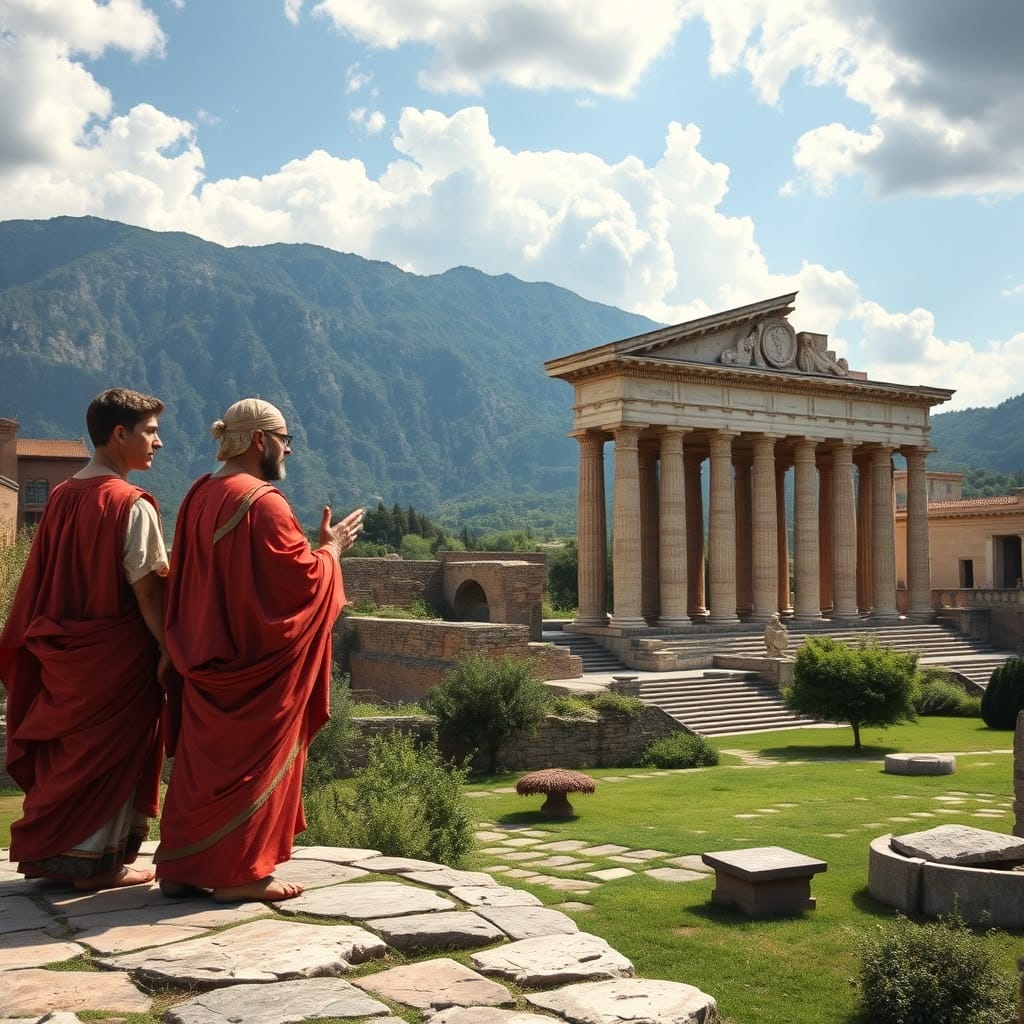
Corruption and Bribery
One of the key instances of consul-led tyranny in ancient Rome was the widespread corruption and bribery that plagued the political system. Consuls, who held significant power and authority, often used their positions to enrich themselves through illegal means. They would accept bribes from wealthy individuals or engage in corrupt practices to secure personal gains.
This abuse of authority not only undermined the integrity of the consulship but also had severe consequences for the Roman Republic as a whole. It led to a lack of trust in the government, as citizens witnessed their elected officials prioritizing personal wealth over public welfare. The prevalence of corruption and bribery within the consulship contributed to the decline and eventual collapse of the Roman Republic.
Examples:
- Consuls accepting bribes from influential businessmen in exchange for favorable legislation or appointments.
- Corrupt consuls misusing public funds for personal luxuries and extravagant lifestyles.
- Bribery influencing election outcomes, allowing unqualified individuals to attain consulship positions.
Suppression of Political Opposition
In addition to corruption, another form of consul-led tyranny in ancient Rome was the suppression of political opposition. Consuls who sought to maintain their power would often resort to oppressive tactics against those who challenged their authority or disagreed with their policies.
This suppression took various forms, including censorship, imprisonment, exile, and even physical violence against political rivals. Consuls would manipulate laws or exploit loopholes to silence dissenting voices and consolidate their control over the government.
Examples:
- Censoring critical publications or speeches that questioned a consul’s actions or policies.
- Falsely accusing political opponents of treason or conspiracy to justify their arrest and imprisonment.
- Exiling prominent figures who posed a threat to a consul’s authority or popularity.
- Using hired thugs or armed forces to intimidate or attack political rivals and their supporters.
Abuse of Judicial Power
The abuse of judicial power was another significant aspect of consul-led tyranny in ancient Rome. Consuls held considerable influence over the legal system, allowing them to manipulate trials and verdicts for personal or political gain.
They would appoint biased judges, interfere with court proceedings, and even override established laws to ensure outcomes that favored their interests. This abuse undermined the principles of justice and fairness within the Roman legal system, eroding public trust in the consulship as the guardian of law and order.
Examples:
- Consuls pressuring judges to deliver verdicts in favor of their allies or themselves.
- Interfering with trial proceedings by intimidating witnesses or manipulating evidence.
- Ignoring established laws and creating new ones to serve their own agendas during court cases.
- Pardoning individuals convicted of crimes if they were politically beneficial to the consul’s image or position.
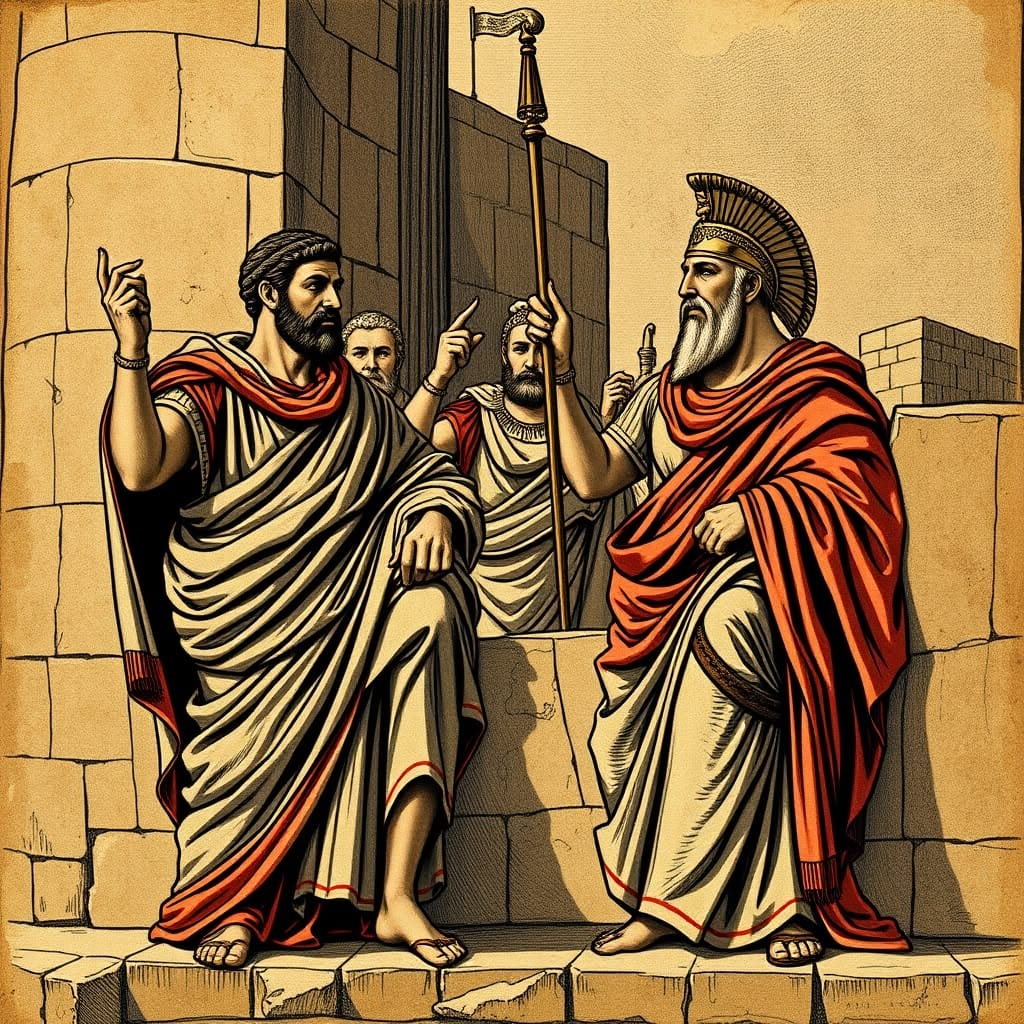
Early Role of Consuls in Ancient Rome
During the early years of ancient Rome, the role of consuls held significant political and military power. Consuls were elected annually and served as the highest-ranking magistrates in the Roman Republic. They were responsible for leading the Roman army in times of war, maintaining law and order within the city, presiding over the Senate meetings, and representing Rome in diplomatic negotiations. In addition to their executive duties, consuls also had the authority to propose legislation and veto decisions made by other magistrates.
Key Responsibilities of Consuls
The primary responsibility of consuls was to ensure the stability and security of Rome. They led military campaigns against external threats, such as neighboring tribes or rival empires, and played a crucial role in expanding Roman territory. Consuls also acted as judges, resolving legal disputes between citizens and enforcing laws. They had the power to impose punishments, including fines or exile, on individuals found guilty of crimes. Furthermore, consuls oversaw public works projects, managed finances, and supervised elections. Some key responsibilities of consuls during this period included: – Leading armies into battle – Presiding over Senate meetings – Proposing legislation – Enforcing laws – Resolving legal disputes – Managing public finances
Evolution of Consular Power
As Rome transitioned from a republic to an empire with the rise of Julius Caesar and subsequent emperors, the role of consuls underwent significant changes. The power once concentrated in the hands of two elected consuls began to shift towards a single emperor who held supreme authority. While emperors still appointed individuals with the title “consul,” their actual powers diminished compared to those enjoyed by their republican predecessors.
Reduced Authority under Imperial Rule
Under imperial rule, consuls primarily served ceremonial functions rather than wielding substantial political power. The emperors retained control over the military and decision-making, rendering the consuls as mere figureheads. Consuls were responsible for organizing public games, spectacles, and festivals to entertain the Roman populace. They also had the duty of welcoming foreign ambassadors and maintaining diplomatic relations with other nations. Despite their diminished authority, consuls still held prestige within Roman society and could influence public opinion. Their position served as a stepping stone for aspiring politicians who sought to climb the ranks of Roman bureaucracy. However, the days of consuls directly shaping Roman politics and leading armies were largely replaced by the centralized authority of emperors during this period. In summary, the role of consuls in ancient Rome evolved from powerful magistrates with executive and military responsibilities to ceremonial figures under imperial rule. The early consuls played crucial roles in governing Rome, leading armies, enacting laws, and resolving disputes. However, as Rome transformed into an empire, their powers diminished significantly, leaving them with primarily symbolic duties within the imperial hierarchy.
The Senate as a Check on Consuls
The Roman Senate played a crucial role in balancing the power of consuls within the political system. Consisting of around 300 members, the Senate was primarily composed of patricians, who were aristocrats from the upper class. The consuls were required to consult with the Senate on important matters and seek their advice before making decisions. This provided a system of checks and balances where the consuls’ power was limited by the collective wisdom and experience of the senators. Furthermore, the Senate had the authority to veto any decision made by a consul. This power allowed them to prevent any potential abuse or misuse of power by consuls. By having this veto power, the Senate acted as a safeguard against any unilateral actions taken by individual consuls that could potentially harm the stability and functioning of Rome’s political system.
List:
- The Senate consisted mainly of patricians.
- Consuls had to consult with and seek advice from the Senate.
- The Senate had veto power over decisions made by consuls.
Tribunes as Protectors of Plebeian Interests
Another check on the power of consuls came from tribunes, who were representatives elected by plebeians (common people) to protect their interests and rights. Tribunes had the authority to veto any decision made by a consul that they deemed harmful or unfair towards plebeians. This gave them significant leverage in curbing potential abuses of power by consuls, particularly when it came to legislation or policies that could negatively impact plebeian citizens. Additionally, tribunes could summon an assembly called “Plebeian Council” where they could propose laws and resolutions directly affecting plebeians. By doing so, they further limited consular powers as they had to consider and negotiate with tribunes before implementing any significant changes or reforms.
List:
- Tribunes were elected representatives of plebeians.
- Tribunes had the power to veto consuls’ decisions.
- Tribunes could propose laws and resolutions in the Plebeian Council.
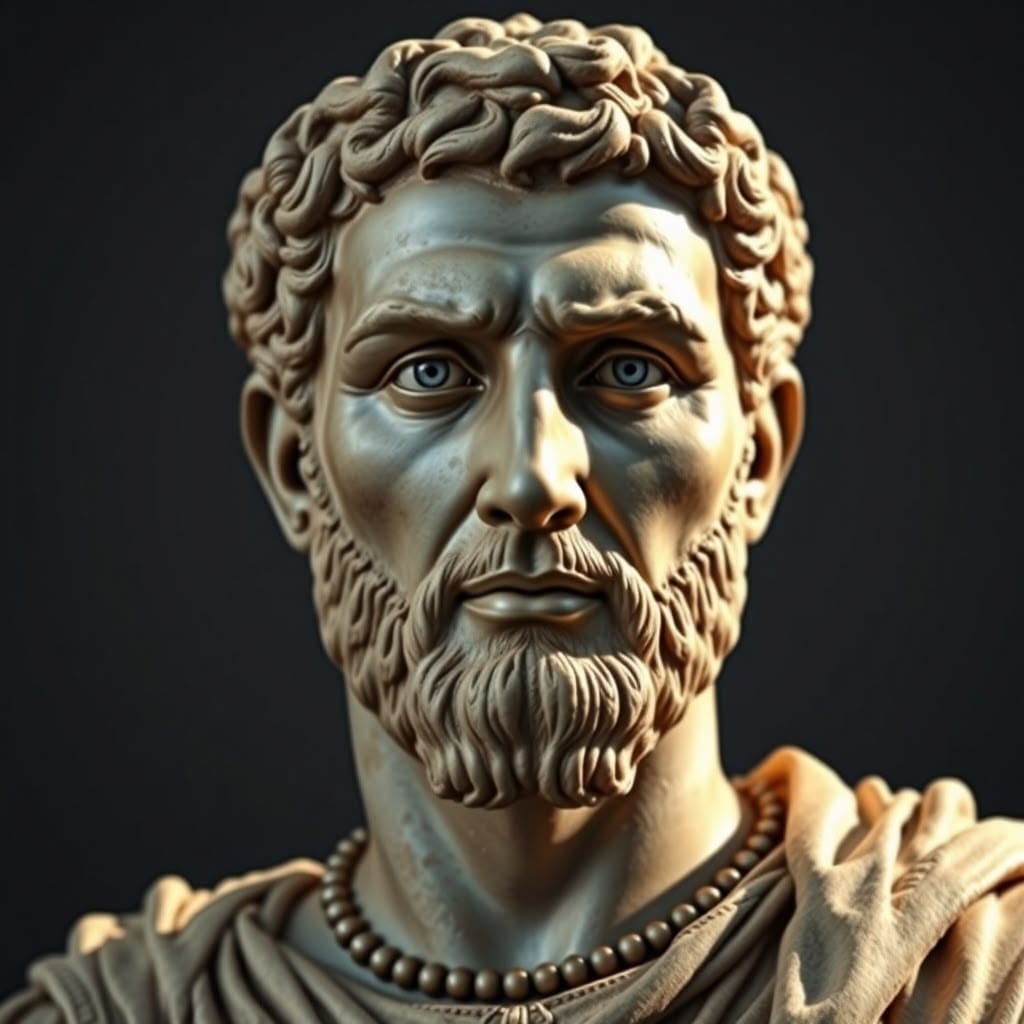
Role of Consuls in Crisis
In times of crisis, such as threats from external enemies or internal rebellions, the role of consuls in Ancient Rome became even more crucial. During these challenging times, the consuls were responsible for leading and coordinating military forces to defend the Roman Republic. They would assess the threat, devise strategic plans, and mobilize troops accordingly. The consuls would also have the authority to declare a state of emergency, granting them additional powers to maintain order and protect the interests of Rome. In addition to their military duties, consuls in times of crisis would also act as mediators between conflicting factions within the city-state, striving to restore stability and unity.
Examples:
– During the Second Punic War against Carthage, consul Scipio Africanus played a pivotal role in leading Roman forces to victory at the Battle of Zama.
– In response to Spartacus’ slave rebellion, consul Marcus Licinius Crassus was appointed to suppress the uprising and restore order within Rome.
Role of Consuls in Times of Peace
During periods of peace, the role of consuls shifted towards governance and administration. As elected officials with a term limit of one year, they were responsible for ensuring law and order within Rome’s territories. Consuls acted as judges in legal disputes and presided over court proceedings. They also had executive powers to enforce laws and regulations enacted by the Senate. Additionally, consuls were tasked with overseeing public works projects such as road construction, aqueducts, and temples that aimed to improve infrastructure and enhance the quality of life for Roman citizens.
Examples:
– Consul Gaius Sempronius Gracchus implemented agrarian reforms during peacetime to distribute land among impoverished citizens.
– Under consul Appius Claudius Caecus, the Appian Way, one of the most famous Roman roads, was constructed to facilitate trade and communication.
Comparison of Crisis and Peace Roles
The roles of consuls in crisis and peace highlight their adaptability and versatility as leaders within Ancient Rome. In times of crisis, consuls were primarily focused on military matters, defense strategies, and maintaining order. They acted as commanders-in-chief and decision-makers to protect Rome’s interests. However, during periods of peace, their responsibilities shifted towards governance and civil administration. Consuls became more involved in legal proceedings, infrastructure development, and implementing policies that aimed to improve the lives of Roman citizens. This stark contrast in roles showcases the dynamic nature of consular leadership depending on the prevailing circumstances within the Roman Republic.
Influence of Public Opinion on Consuls’ Authority
Public opinion played a significant role in shaping the authority of consuls in ancient Rome. The consulship was the highest political office, and the consuls were responsible for making important decisions that affected the entire Roman Republic. However, their power was not absolute, as they had to consider the opinions and sentiments of the general public. One way public opinion influenced consuls’ authority was through popular support or opposition. If a consul’s actions aligned with the desires and interests of the people, they would gain public support, which enhanced their authority. On the other hand, if a consul made decisions that were unpopular or seemed against the welfare of the citizens, it could lead to protests or even riots, undermining their authority.
Example:
An example illustrating this is during times of war when consuls had to decide whether to engage in military campaigns. If a consul proposed a war that was seen as necessary for protecting Rome’s interests and gaining glory for the republic, they would likely receive widespread support from both the Senate and the people. This support would strengthen their authority and enable them to mobilize resources more effectively. However, if a consul advocated for an unnecessary or unjust war that did not align with public sentiment, they could face strong opposition from senators and citizens alike. Public assemblies might openly express their disapproval through speeches or demonstrations. In such cases, consuls often had to reconsider their plans or risk losing legitimacy and facing potential consequences.
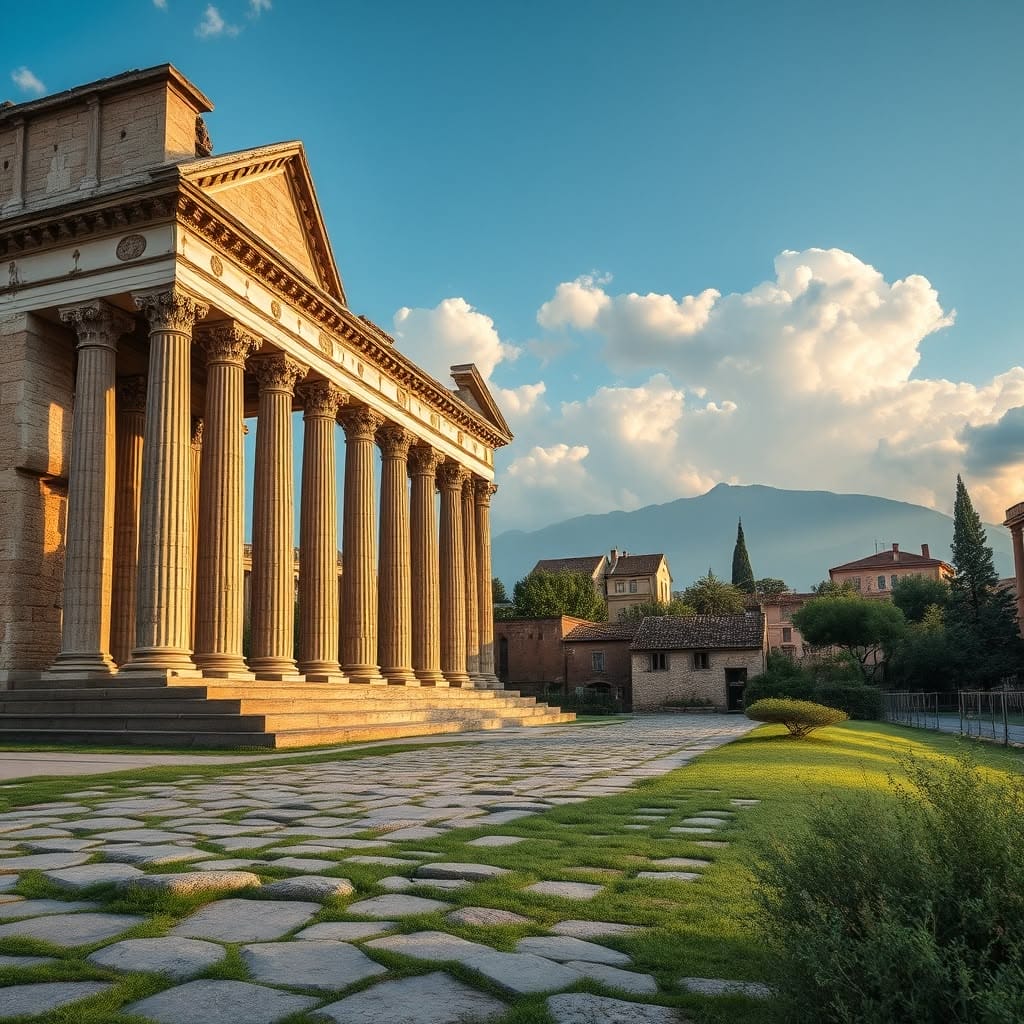
Impact of Public Opinion on Consuls’ Actions
Public opinion had a direct impact on how consuls carried out their duties and made decisions in ancient Rome. Consuls were aware that they needed to maintain public favor to effectively govern and achieve their objectives. To gauge public sentiment accurately, consuls relied on various means such as attending popular assemblies where citizens voiced their concerns and desires. They also sought advice from influential figures in society, including senators, prominent citizens, and even religious leaders who held sway over public opinion. Consuls often used their speeches and public appearances to shape public opinion in their favor. By eloquently presenting their policies or actions as being in the best interest of Rome and its citizens, they aimed to gain popular support. They understood that if they failed to convince the people, their ability to implement policies or enact reforms would be significantly hindered. Furthermore, consuls had to consider the potential consequences of ignoring public opinion. If a consul persisted with an unpopular decision despite widespread opposition, it could lead to social unrest or even threats to their personal safety. Therefore, consuls were compelled to adapt their actions based on the prevailing sentiments of the population. In summary, public opinion exerted influence on both the authority and actions of consuls in ancient Rome. The support or opposition of the people shaped the extent of their authority and affected how they carried out their responsibilities. Consuls recognized the importance of aligning with public sentiment for maintaining legitimacy and achieving successful governance.
Appointment and Authority of Consuls
The appointment of consuls in ancient Rome was a highly esteemed position that carried significant authority. Consuls were elected annually by the Roman Senate and held the highest executive power in the Roman Republic. They were responsible for presiding over the Senate, commanding the Roman army, administering justice, and representing Rome in foreign affairs. The consuls had imperium, which granted them the power to rule over both citizens and non-citizens within their jurisdiction.
Responsibilities:
– Presiding over the Senate: Consuls had the responsibility of leading discussions and making decisions during Senate sessions.
– Military Command: As military leaders, consuls were responsible for organizing and commanding Roman legions during times of war.
– Judicial Duties: Consuls acted as judges in certain cases, particularly those involving high-profile crimes or disputes between citizens.
– Diplomatic Relations: Consuls represented Rome in diplomatic negotiations with foreign powers, forging alliances or settling conflicts on behalf of the Republic.
Accountability and Oversight
While consuls held considerable power, they were not exempt from accountability and oversight within ancient Rome’s legal system. Various laws and regulations ensured that consuls upheld their responsibilities ethically and lawfully.
Laws Governing Consul Conduct:
– Lex Acilia Calpurnia: This law required consuls to swear an oath before taking office, promising to uphold the laws and prioritize the interests of Rome. – Lex Valeria Horatia: This law established that any decision made by a consul could be appealed to the people’s assembly (comitia tributa) if it was deemed unjust or unconstitutional. – Lex Sempronia de Provinciis Consularibus: This law regulated consul appointments to provinces outside of Rome. It ensured fair distribution of these assignments among consuls and prevented abuse of power.
Oversight Mechanisms:
– Censors: The Roman censors, elected every five years, had the authority to assess the conduct of consuls and other magistrates. They could remove individuals from office if they were found guilty of misconduct.
– Tribunes of the Plebs: These officials represented the interests of the plebeian class and had the power to intervene if they believed a consul was acting against the people’s welfare or violating their rights.
Overall, these laws and oversight mechanisms aimed to maintain a balance between granting consuls significant authority while ensuring they acted in accordance with Roman values and principles.
Conclusion
In conclusion, the ancient Roman consuls held a position of great authority and power in the Republic. However, their power was carefully balanced through checks and balances to prevent any individual from becoming tyrannical. The system of veto power between consuls, rotation of consulship, consultation with other magistrates and the Senate, as well as oversight from various governmental bodies ensured a more equitable distribution of power. Consuls were also subject to legal constraints and public opinion, further preventing abuse of their authority. This delicate balance allowed for effective governance while safeguarding against tyranny in ancient Rome.

